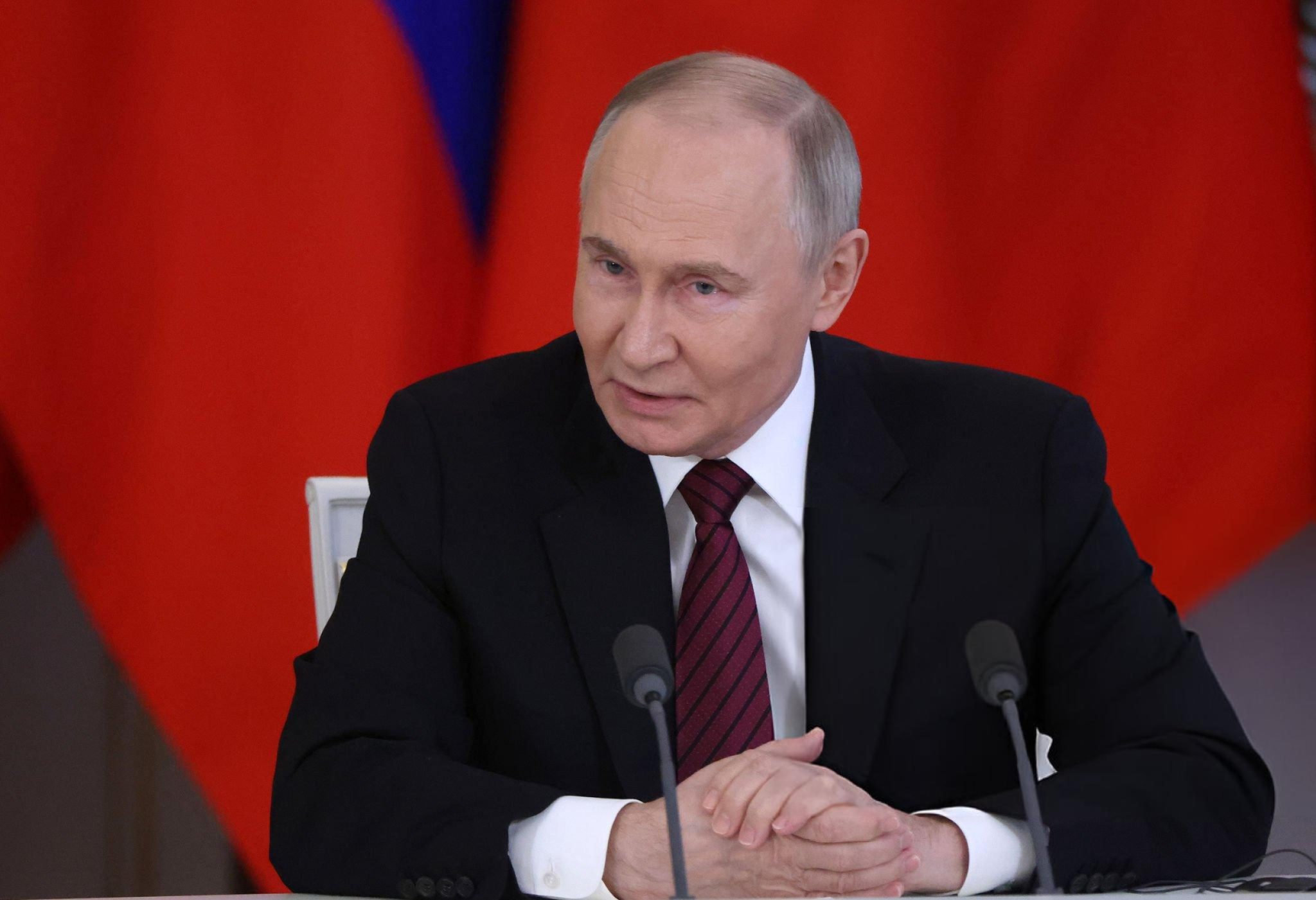Putin withdraws from planned Istanbul talks with zelensky, casting fresh doubt on peace prospects
In a significant twist to the anticipated peace negotiations between Russia and Ukraine, the Kremlin has confirmed that President Vladimir Putin will not personally participate in the planned talks in Istanbul. The announcement, which comes just days before the two sides were expected to convene, has thrown fresh uncertainty over the process, raising serious questions about Moscow’s commitment to meaningful dialogue.
On wednesday, the Kremlin issued an official statement listing Russia’s delegation to the Istanbul talks. The delegation will be led by Vladimir Medinski, a presidential adviser who previously headed the Russian team during abortive negotiations in 2022. Joining Medinski will be deputy defence Minister Alexander Fomin and deputy Foreign Minister Mikhail Galuzin, both seen as key figures within Moscow’s diplomatic and defence establishments.
The absence of Putin from the talks has drawn sharp criticism from Kyiv. Ukrainian President Volodymyr Zelensky has long maintained that only a direct dialogue with the Russian leader himself can produce substantive outcomes. Speaking to the press, Zelensky underscored his position, stating, “This is his war. Only he can stop it. Negotiations without him are simply not serious.”
The talks are set to take place in Istanbul, the same city where earlier peace discussions were held in 2022. Those discussions ultimately collapsed amid accusations from Moscow that Western influence, particularly from the Biden administration, had undermined the process. While Turkey, which is hosting the latest round, hopes to rekindle some form of progress, the atmosphere has been clouded by mistrust and scepticism.
Ukraine’s lead negotiator, Mykhailo Podolyak, voiced his government’s growing doubts over Moscow’s intentions. He labelled the Kremlin’s move as a calculated stalling tactic designed to buy time and delay further Western sanctions. “Putin does not know how to negotiate outside of platforms he fully controls,” Podolyak said. “His absence shows that Russia is not interested in an equal, transparent dialogue.”
Podolyak further suggested that the Russian side’s insistence on sending senior advisers rather than Putin himself is an attempt to maintain the illusion of diplomacy while prolonging the conflict on the battlefield. “They are buying time, not seeking peace,” he added.
Moscow, however, has pushed back against these accusations, insisting that the talks will proceed in good faith. Kremlin spokesman Dmitry Peskov defended the composition of the delegation, asserting that Medinski and his team have the full backing of the Russian president and are authorised to negotiate on his behalf. “The president does not need to be physically present for talks to be effective,” Peskov stated.
Nevertheless, the absence of Putin is widely seen as a symbolic snub to both Kyiv and the international community, many of whom were hoping that the Istanbul talks would mark a turning point in the 26-month-long conflict.
Political analysts have described the development as a major setback. “Without Putin’s direct involvement, the scope for progress becomes extremely limited,” said Tatiana Stanovaya, an independent Russian political analyst. “It signals that Moscow is still unwilling to compromise on its core positions.”
The stakes for the Istanbul talks were already high, with both sides suffering heavy losses in recent months and the humanitarian toll continuing to mount. Russia’s battlefield advances in the east have been met with stiff Ukrainian resistance, while drone attacks and missile strikes have escalated on both sides.
The upcoming talks now face an uphill battle, with many fearing that they will serve more as a diplomatic formality than a genuine attempt to broker peace. Global attention will turn to Istanbul in the coming days, but expectations have been tempered by the reality that, without Putin at the table, any immediate breakthrough appears increasingly unlikely.






